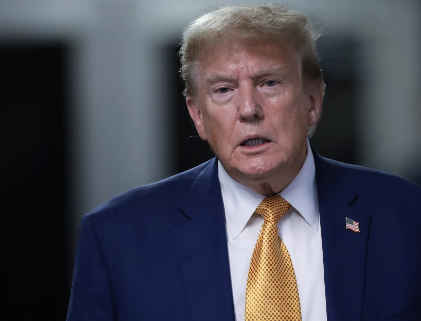The trial of Donald Trump has reached a critical juncture as prosecutors make their final pitch to the jury, seeking a historic criminal conviction of a former US president.
The allegations against Trump involve falsifying business records to silence adult film star Stormy Daniels over a 2006 sexual encounter, potentially damaging his 2016 presidential bid.
With less than six months before the next presidential election, the verdict’s implications are significant, both for Trump personally and for the country as a whole.
Although Trump faces up to four years in prison on each of the 34 counts, legal experts suggest that as a first-time offender, he is unlikely to receive jail time.
Importantly, a conviction would not prevent Trump from appearing on the ballot as the Republican presidential candidate in November.
The trial has been marked by intense scrutiny, lasting nearly five weeks and featuring testimony from over 20 witnesses.
Trump opted not to testify in his defense, avoiding potential legal risks and cross-examination. Throughout the trial, he criticized the proceedings, labeling the judge as “corrupt” and accusing Democrats of election interference.
The prosecution’s case relied heavily on key witness Michael Cohen, Trump’s former “fixer,” who testified about arranging the hush money payment to Daniels.
Trump’s defense team sought to discredit Cohen, highlighting his history of lying and criminal convictions.
As the trial approaches its conclusion, the jury’s decision will be crucial. A guilty verdict requires unanimity, with even one holdout resulting in a mistrial. Following closing arguments, the jury will deliberate, likely beginning on Wednesday.
In addition to the New York case, Trump faces indictments in Washington and Georgia related to the 2020 election and charges in Florida for mishandling classified documents.
However, none of these trials are expected to occur before the November election.



